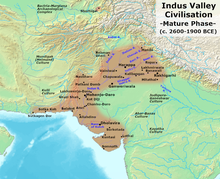Aupmanyav
Be your own guru
If you are it, then whom to worship? Whence theism? "Tattwamasi'.You mean no theism is required if there is Non-Duality, Oneness ?
Welcome to Religious Forums, a friendly forum to discuss all religions in a friendly surrounding.
Your voice is missing! You will need to register to get access to the following site features:We hope to see you as a part of our community soon!
If you are it, then whom to worship? Whence theism? "Tattwamasi'.You mean no theism is required if there is Non-Duality, Oneness ?
If you are it, then whom to worship? Whence theism? "Tattwamasi'.
God I'm a mess. :Op
A couple of questions:
1. What's "Sanathan dharma"?
2. Were Siddhartha and Guru Nanak contemporaries?
Sikhi and Buddhism both have Dharmic origins, both focus on self-realization/Nirvaana.
To me they diverge because
1) Sikhi is theistic(Panentheistic) and Buddhism is not.
2)Sikhi prefer householder life and In Buddhism encourage Monk life style.
3)Element of Khalsa in Sikhi and Ahimsa in Buddhism
Nothing different, Divergence is not considered a crime in Hinduism, and the variety in Hinduism is vast.
For a long time, Buddhism and Sikhism were part of Hinduism; then for various reasons, they took up a different identity. Most Sikhs have their origin in Hindu families.
He did, and they joined the Sangha. Yasodhara and Rahula.
"Later, when the Buddha returned home, Rahula, was urged by his mother to ask his father for his inheritance. The Buddha told his son he had something far more valuable than riches to give him—the dharma. As a monk Rahula was called “lucky Rahula,” known for his eagerness for training, his patience, and his dedication to the monastic code. Rahula’s ordination pained Suddhodana and led him to rebuke the Buddha for hurting his family twice. However, many of the Buddha’s relatives eventually joined him in the sangha, including Yasodhara, who became an arhat."
- Who was the Buddha’s family?
Not even close. The Buddha was alive very roughly 500 BCE (there's lots of scholarly controversy about that) and Guru Nanak was alive in 1500 CE. That's a difference of about 2000 years.
Perhaps you are thinking of Jainism. One of the most prominent Jain Tirthankaras was Mahavira, who is believed to have been a contemporary of the Buddha. (The early Buddhist suttas refer to the Jains and early Jain writings refer to the Buddha. Predictably, each side is depicted as defeating the other in debate.)
Jains believe that Jainism is eternal and many Tirthankaras preceeded Mahavira. (Just as Buddhists believe that many Buddhas preceeded the historical Buddha.) In my opinion Jainism probaby is an older tradition than Buddhism, perhaps more closely representative of the Shramana (forest ascetic) tradition out of which both Jainism and Buddhism evolved. So some of the earlier Jain figures might arguably be historical.
There are many similarities between Buddhism and Jainism. But far fewer between Buddhism and Sikhism. My opinion is that Sikhism is more of a syncretism between Hinduism and Islam.
Geographically 'Indus Valley Civilization' extended to both sides of Rivers Indus, Ghagghar and Northern part of Yamuna for some distance, and Gujarat. What now we have can be termed as 'the Indian civilization'.How far does the definition of "Indus Valley Civilization" stretch geographically ..?
Both Sikhism and Buddhism are nastika or non-Vedic religions.
Do you get Jains who DON'T worship Hindu God's?

Geographically 'Indus Valley Civilization' extended to both sides of Rivers Indus, Ghagghar and Northern part of Yamuna for some distance, and Gujarat. What now we have can be termed as 'the Indian civilization'.
Sikhism, as practiced is not 'nastika'.
Very few Jains worship Hindu Gods and Goddesses. They have their tirthankars.
For bigger map, go to Wikipedia.
Indus Valley civilization ended around 1000 years before Buddha's time.There's no Lumbini (Nepal) in that
Indus Valley civilization ended around 1000 years before Buddha's time.
They are not part of Hinduism, though they have similarities with Hinduism. They were 'matas' (Opinions) or Panthas (Ways) to begin with. It took centuries for them to become separate religions. Since millions of Hindus follow Sikh gurus and consider Sri Guru Granth Sahib ji as their sufficient scripture (Sindhis, Punjabis), so the cord is still not broken.So why were Jainism, Buddhism and Sikhism considered a part of Hinduism ?
Sanatan dharma or Hinduism is a mix of Vedic religion and Indian indigenous religious thought over some 4,000 years (that is when Aryans came to India).A couple of questions:
1. What's "Sanathan dharma"?
2. Were Siddhartha and Guru Nanak contemporaries?
